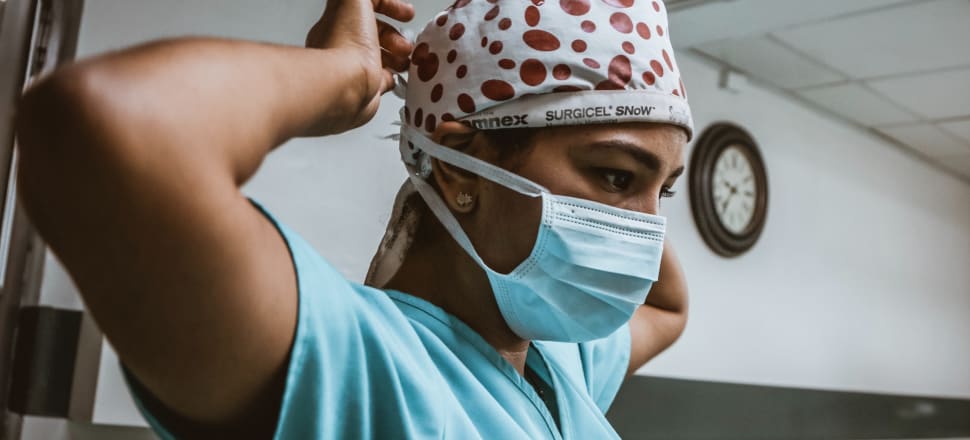
The classrooms at the Healthcare Academy of New Zealand are sitting empty and its owners blame red tape for a 12-month delay before it can open
New Zealand’s largest private educator has invested $1.5 million in a new nurse training school aimed at alleviating the healthcare worker shortage – but it can’t open its doors.
Up Education, which operates the Yoobee Colleges network of vocational education and training in New Zealand, is yet to receive vital approval from the Nursing Council of New Zealand and expects to have to wait an entire year for it to complete a wider sector review.
Its new Healthcare Academy of New Zealand plans to start with a diploma in enrolled nursing, an 18-month course it hopes will help create a domestic pipeline of nurses.
READ MORE: * Care funding crises hit both ends of life * Bringing health care closer to home – or just another review * In aged care crisis, the grass is always greener
Healthcare Academy chief executive Ana Maria Rivera said relying on immigration to fill workforce needs could be fickle and a homegrown solution was necessary.
Currently, nursing in New Zealand is done through a three-year bachelor of nursing degree which Rivera said could be off-putting for domestic students considering perceptions of end pay and the time involved.
She said committing to a whole bachelor's degree was often harder for those from a Māori or Pasifika background who have pressing family commitments.
The end result of the diploma would be a job as an enrolled nurse, rather than a registered nurse, the difference being enrolled nurses not being able to create patient management plans and requiring supervision in some instances.
Rivera said enrolled nurses could play a larger role in the aged care, mental health and addiction areas.
A total of $1.5m was invested into the campus in the Auckland CBD, including $370,000 from the Tertiary Education Committee.
However, its diploma is not yet recognised by NZQA and the Nursing Council of New Zealand.
It is actively working with NZQA but the Nursing Council poses a greater frustration.
Currently, the Nursing Council’s stance is that to offer enrolled nursing in New Zealand you need to offer a bachelor's qualification, but Rivera said Up Education’s near identical diploma in Australia could be transferred to a job in New Zealand.
“Nursing Council New Zealand had sort of said 'yep, we understand the barrier is redundant, we will consult with the board on lifting the barrier.'
“That was back in October last year, and then they came back saying actually, we're not going to consult on lifting that standard, but rather we're going to bundle it up into a broader review of the whole scope of practice and what an enrolled nurse does, and then who can deliver the education will be looked at.”
She expects that will take at least a year and said it was bizarre because the nurse shortage is well understood.
“We've taken a risk; we built the facility because we know there's a shortage and we know the industry wants it. So, it's actually sad for New Zealand and obviously, it's also frustrating for us,” Rivera said.
The Nursing Council wouldn’t comment on an individual accreditation process but said the review of the enrolled nurse scope of practice started in August and a new scope statement would be published soon.
It said all work, including a second phase of the review involving the development of new education standards and nursing competencies, would be completed by the end of the year.







